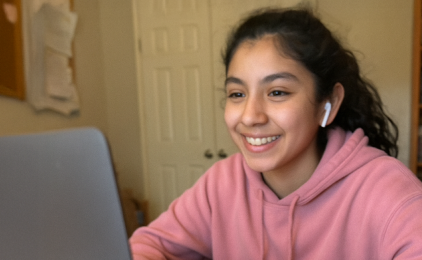
Teacher Resources Available for Venn Diagrams
Explore resources on Venn diagrams for Years 7 through 10. Aligned with the Australian curriculum, these materials help students visually represent sets and their relationships, progressing from simple two-set diagrams to more complex applications in probability and logic.


.svg)


.svg)


.svg)


.svg)


What’s included in the resources for %%venn diagrams%%?
🔥Curriculum Aligned
Aligned to the Australian Maths Curriculum v9.0, Venn Diagrams help teachers introduce set theory and the relationships between different groups of data. Teachers can apply these diagrams to real-world contexts like surveys or comparing characteristics of objects, making lessons interactive and applicable.
.png)

🌍 Differentiated for Students
Teach students to use Venn diagrams by applying them to tasks like sorting data, analysing relationships, and comparing sets. These practical examples show how Venn diagrams help organise information and make sense of complex relationships.
💡Incredible Teacher Resources
Venn diagram resources provide prompts to help students compare and contrast sets by using overlapping circles to represent relationships. Advanced prompts challenge students to explore set theory concepts such as unions, intersections, and complements, ensuring a thorough understanding of how Venn diagrams can be applied in various contexts.

Interactive Resources
Practice Questions
Tutero’s teacher resources provide clear explanations of Venn diagrams, showing how to illustrate and compare sets. Teachers can use practical examples to demonstrate how students can use Venn diagrams to solve problems involving union, intersection, and differences between sets.
Structured Solutions
Differentiated Questions
Tutero’s teacher resources provide Venn diagram problems that teach students how to represent and interpret sets and their relationships. These exercises help students understand intersections, unions, and complements, equipping them for both assessments and everyday use.
Real-World Applications
Engaging Exercises
Tutero’s Venn diagram resources enable students to categorise and compare data sets using real-world examples, such as comparing interests in surveys or analysing overlapping groups. These tasks help students grasp the concept of sets and logical reasoning.
Access your resources for venn diagrams today!

"I love these resources on venn diagrams"
- You in approximately four minutes
What is covered in the resources for venn diagrams?
Early Concepts of Chance: Engaging Activities
For Years 1 and 2, our resources introduce the concept of chance with engaging activities. Lesson plans include exercises such as creating simple charts to represent outcomes of everyday events, like drawing different colored balls from a bag. These activities help young students grasp the basics of probability and make learning interactive and enjoyable.
Building Probability Skills: Interactive Lessons
For Years 3 and 4, our resources focus on developing a deeper understanding of probability. Lesson plans feature activities like rolling dice to explore different outcomes and using spinner games to practice predicting results. These resources help students learn to calculate simple probabilities and understand how they can be used in various situations.
Exploring Advanced Probability: Detailed Lessons and Practice
For Years 5 through 10, our resources cover advanced probability topics. Lessons include studying probability models, analysing data sets, and exploring compound events. Students work on detailed exercises that challenge them to apply probability concepts to complex problems, preparing them for more sophisticated mathematical thinking and real-world applications.

Teachers save hours with these resources on venn diagrams


.svg)
.avif)






.svg)


.png)






.png)
.svg)


.png)
.png)
.png)
.png)
.png)
